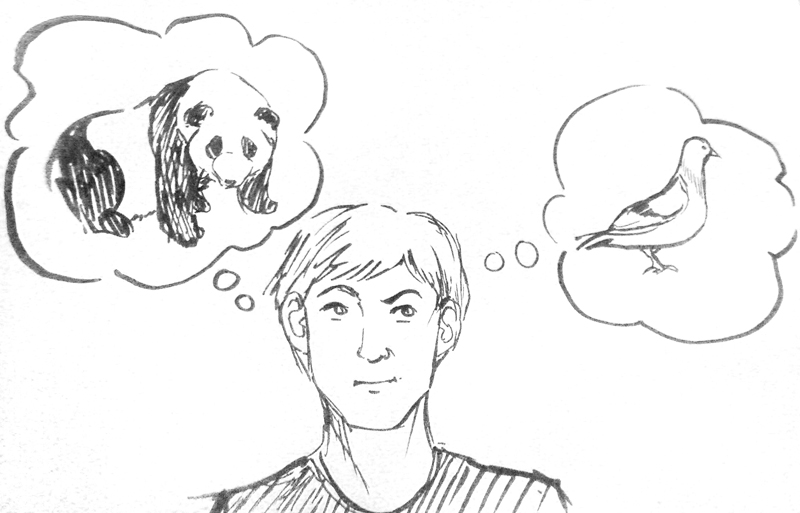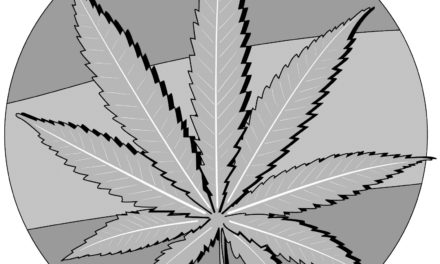With overwhelming complacency we accept narratives about the calamity of climate change.
Such elaborate narratives lack critical thought toward the issue at hand. The Intergovernmental Panel on Climate Change (IPCC) recently published its fifth assessment report in which it determined, with near-certainty, that climate change is anthropogenic (human-caused) in nature and that it will have deleterious effects on many species. But is that really a problem?
The bottom line is that climate change is change. As with all change, there will be consequences for better or for worse. Is it therefore negligent to simply focus on the species unable to adapt sufficiently to survive in the inhospitable world? Every moment we spend lamenting the loss of a polar bear is one we are not celebrating the rise in sea jelly populations.
Every dime we spend to save pandas is one we could save by instead focusing on how well many species of pigeon are acclimating to human influence. Are we, in our efforts to halt the natural process of evolution, letting our bias cloud our judgment? Countless species have already adapted to the human environment and continue to thrive in the changing climate. Bark beetles, sea stars and nurse sharks are but a few of such species. Changing wind patterns allow albatross to expend less energy finding food, while some butterflies have experienced population growth related to habitat expansion. Thawed glaciers leave more territory for orcas to hunt and trumpeter swans to raise their young, while warmer temperatures allow ectothermic reptiles, like snakes, to expand their range. Shorter winters have lengthened the breeding season for marmots and other hibernating mammals, while entire subarctic regions are now available to colonization by plants, which can thrive in our carbon dioxide-laden atmosphere.
It is important to weigh the benefits of a changing climate impartially against the costs and to incorporate both into the subsequent discussions.
Charismatic megafauna, such as elephants, rhinoceros, pandas or whales, are often placed on a pedestal (see: World Wildlife Fund) to show the damaging impacts of climate change. Is this really the most efficient, economical use of limited resources? Many people defend loss of species by pointing to services that ecosystems provide for humans, like cleaning air, purifying water or providing food.
However, the charismatic megafauna offer few, if any, tangible ecosystem services to benefit humans.
We cannot eat a rhino, elephants do not clean air and whales, though they live in it, do not purify water.
Resources would be better allocated to other issues, such as investing in organisms that help facilitate better living for humans or figuring out ways to benefit from the species that are well adapted to the human-dominated environment. If all the funds are spent trying to control sea jelly populations instead of finding uses for them, of course it will appear as a negative thing that they have blossomed so successfully under climate change.
Many claim the web of life is so complex and that small changes would have resounding effects. How complex could the web really be, considering alterations can disrupt it so efficiently? Such an intricate mesh has natural safeguards to prevent its collapse, and as one thread weakens, another swells to bear its weight.
The web of life should not be thought of as something static that can be broken, but instead as a writhing net of earthworms in which each break results in the formation of two new strands to fill its place.
Competition, in its various forms, drives natural selection. By increasing the pressure on species, we are facilitating evolution. Just as the mass extinction event 65 million years ago swept aside the reign of dinosaurs and paved the way for mammals, we too are loosening the clogged shores of the environment to allow the river of evolution to run its course.
We should be praising the ingenuity and adaptability of certain species rather than bemoaning the loss of those unable to preserve their genetic lineage.
Benjamin Kramer-Roach is a College senior from Cambridge, Mass.
Illustration by Katrina Worsham
The Emory Wheel was founded in 1919 and is currently the only independent, student-run newspaper of Emory University. The Wheel publishes weekly on Wednesdays during the academic year, except during University holidays and scheduled publication intermissions.
The Wheel is financially and editorially independent from the University. All of its content is generated by the Wheel’s more than 100 student staff members and contributing writers, and its printing costs are covered by profits from self-generated advertising sales.





